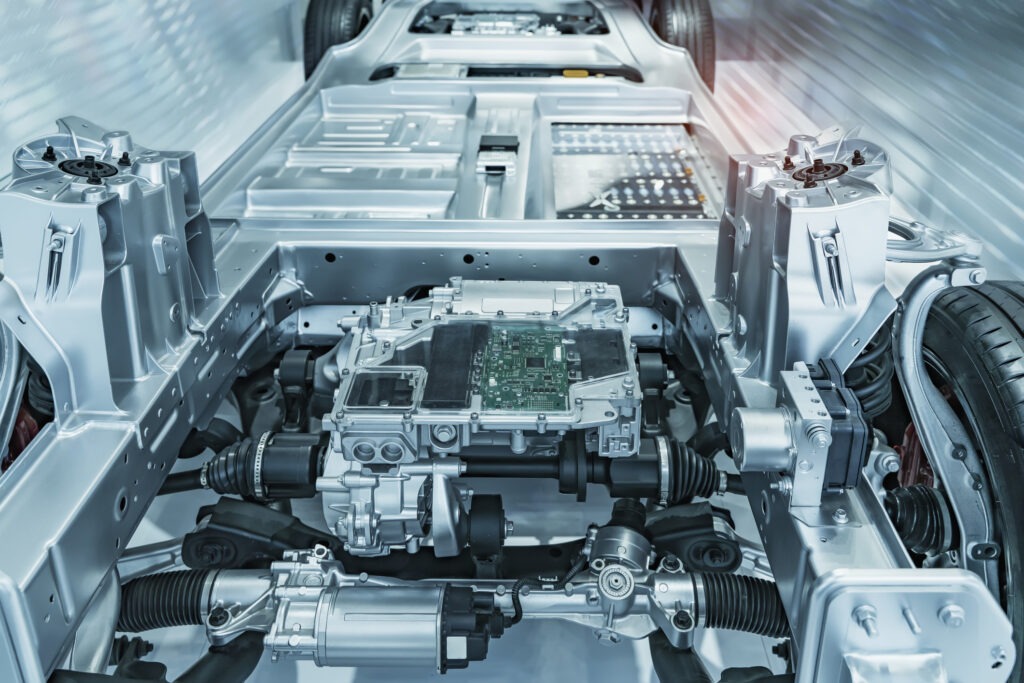European new-car markets see more misleading growth in April
12 May 2023

New-car markets in Italy, France and Spain all recorded another month of strong, year-on-year growth in April. Italy took the lead posting a 29.2% increase in registrations, with France not too far behind, up 21.8%. Meanwhile, Spain saw registrations rise 8.2% against April 2022.
Registrations also increased in the year to date. From January to April, the French new-car market grew 16.7% compared to the first four months of 2023, while Spain and Italy saw gains of 33.7% and 26.9% respectively.
Recovery is hard to track
However, these positive figures paint a slightly misleading picture. In April 2020, all three new-car markets felt the full weight of the COVID-19 pandemic. Enormous year-on-year declines were recorded across Spain (down 96.5%) and Italy (down 97.5%) and France (88.8%). Since then, markets have been fighting to return to form.
This makes year-on-year comparisons misleading. For example, registrations recorded in 2022 are effectively magnifying results in 2023. Compared to pre-COVID April 2019, all three markets saw new-car registrations suffer double-digit declines last month. Spain sank by 37.4%, France fell by 29.5%, and Italy dropped by 28%.
Wider economic turmoil is also a cause for concern, threatening consumer spending power. The EU’s statistical office, Eurostat, estimates that inflation in the Euro area sat at 7% in April, up from 6.9% in March. Results were mixed between countries, however. Spain saw inflation rise from 3.1% in March to 3.8% last month. Italy saw a similar rise, from 8.1% to 8.8%. Meanwhile, France climbed from 6.7% in March to 6.9% in April.
The European Central Bank (ECB) said that ‘the inflation outlook continues to be too high for too long.’ While headline inflation declined in recent months, underlying price pressures have not yet subsided. This is what spurred the ECB to raise interest rates by 0.25 points in May. While this slows the pace of interest rate increases, further measures can be expected.
Additionally, COVID-19 and the war in Ukraine resulted in supply bottlenecks of key components to the automotive industry, such as semiconductors and wire harnesses. This slowed manufacturing, with delivery times extending exponentially, especially last year. But as these bottlenecks begin to dissipate, carmakers are now fulfilling order backlogs which is distorting registration figures. Therefore, the long-term recovery of the automotive market is less clear cut.
Comparative conundrum in Spain
Despite another month of registration increases in Spain, with 74,749 new passenger cars taking to the country’s roads, there was a cautionary tale coming from the Spanish automotive association ANFAC.
Félix García, director of communication and marketing at ANFAC, commented on the comparative conundrum of pre-COVID-19 years. He confirmed that last month’s seemingly positive figures are a cause for concern when judged against April 2019, with registrations down roughly a third. On top of this, he pointed to issues surrounding sustainability and changing public perceptions.
‘Buyers continue to have immense doubts about which car to buy as they continue to hear messages that demonise the car. Spain, as the second largest car producer in Europe, must commit to a sustainable mobility model that includes the private car as part of the solution and not as part of the problem of decarbonisation’ García said.
With registrations up 8.2%, ANFAC said this improvement was thanks to a better rate of vehicle production and transport, enabling greater agility in the delivery of orders.
‘April's registrations make us recall with nostalgia when, before the pandemic and as the summer approached, the market easily surpassed 100,000 units registered,’ said Raúl Morales, Faconauto’s director of communications. ‘This April we have fallen far short of those 100,000 units and we have also noticed a certain slowdown in the growth we have been seeing in the first three months of the year.’
GANVAM's director of communications, Tania Puche, explained that there was one less working day in April than last year, which will have contributed to a slowdown in registrations. ‘If we compare it with the pre-pandemic reference, this "calendar effect" becomes more acute, since April 2019 had two more working days than this year.
‘On the other hand, rental companies had already made their fleet provisioning to meet Easter demand, so their growth has also slowed down. The performance of this second quarter will be key to determining the gradual return to normality,’ Puche added.
Compared with the 119,417 registrations recorded in April 2019, the market fell by 37.4%. With 312,314 new cars hitting the roads in the first four months of this year, the country saw year-on-year growth of 33.7%. Morales said that confirmation was required as to whether orders are coming in, which would guarantee some registrations for the second quarter of 2023 and encourage recovery.
Europe-only incentives?
The French new-car market saw 132,509 registrations in April 2023, according to the CCFA. However, the country also recorded a 27.4% drop in figures month on month, although there were four extra working days in March. When stacked against the 188,195 units registered in April 2019, France saw a decline of 29.5%.
In the first four months of 2023, the French new-car market recorded 553,396 registrations, up 16.7% on the 474,084 new units counted in 2022. But once again, compared to the 741,530 new cars that took to the road in 2019, the market saw a decline of 25.3%.
With the US Inflation Reduction Act (IRA) casting a long shadow, Plateforme de la filière automobile (PFA) proposed that a state bonus for electric-vehicle (EV) purchases be kept for models made in Europe.
The call comes as the EV share in France, made up of both hybrid and plug-in vehicles, dropped to 21% in April, the lowest since July 2022. This could be part of an agreement due to be negotiated by the automotive industry and the state covering the period between 2023 and 2027.
Italy hopes to avoid ‘waiting effect’
ANFIA reported that 125,805 new cars were registered in Italy last month, up 29.2% from the 97,365 units recorded in April 2022. This was the Italian new-car market's fourth consecutive month of double-digit growth.
April 2022 performed negatively as buyers waited on incentives for zero- and low-emission vehicles to come into force. When compared to pre-COVID-19 levels, the Italian market saw 174,924 units registered in April 2019, which means it sank by 28% comparatively this year.
The first four months of 2023 saw 552,850 total registrations, compared with the 435,681 units in the same period in 2022, equating to a growth of 26.9%. However, compared with the 712,991 registrations in the first four months of 2019, this is a drop of 22.4%.
Paolo Scudieri, president of ANFIA, said that to avoid a ‘waiting effect’ in the coming months, the remodulation of the current incentives needs to accelerate. He also called for the reallocation of over €250 million, apparently left over from the 2022 eco-bonus, to help support recovery and the growth of the battery-electric vehicle (BEV) market.



